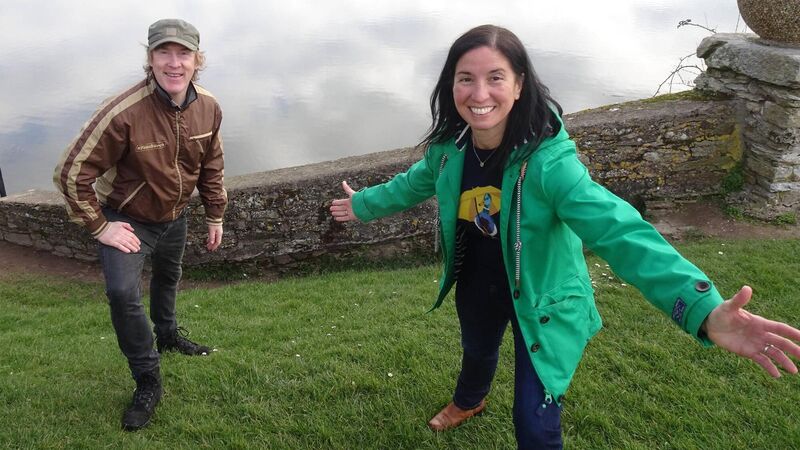Hector stays home this year to meet some of the new Irish

Éire Nua: Hector Ó hEochagáin in Aghada, Co Cork, with Fernanda González from Argentina.
Hector Ó hEochagáin was in Mombasa, Kenya in March 2020 – “having a beer, swimming in the tropical waters of the Indian Ocean in 30 degrees” – when he got a series of texts from his kids telling him that schools were shuttering back in Ireland. It was the harbinger of the lockdown era that would become the new normal. He legged it home.
After decades of gadding about the globe making travel shows, Hector found himself grounded in Ireland because of the pandemic. He had to pivot: so, instead of travelling abroad, Hector has spent this year careering around the island meeting and chatting to 'New Irelanders' – the immigrants that have transformed Ireland in the space of a generation into a multicultural country.




